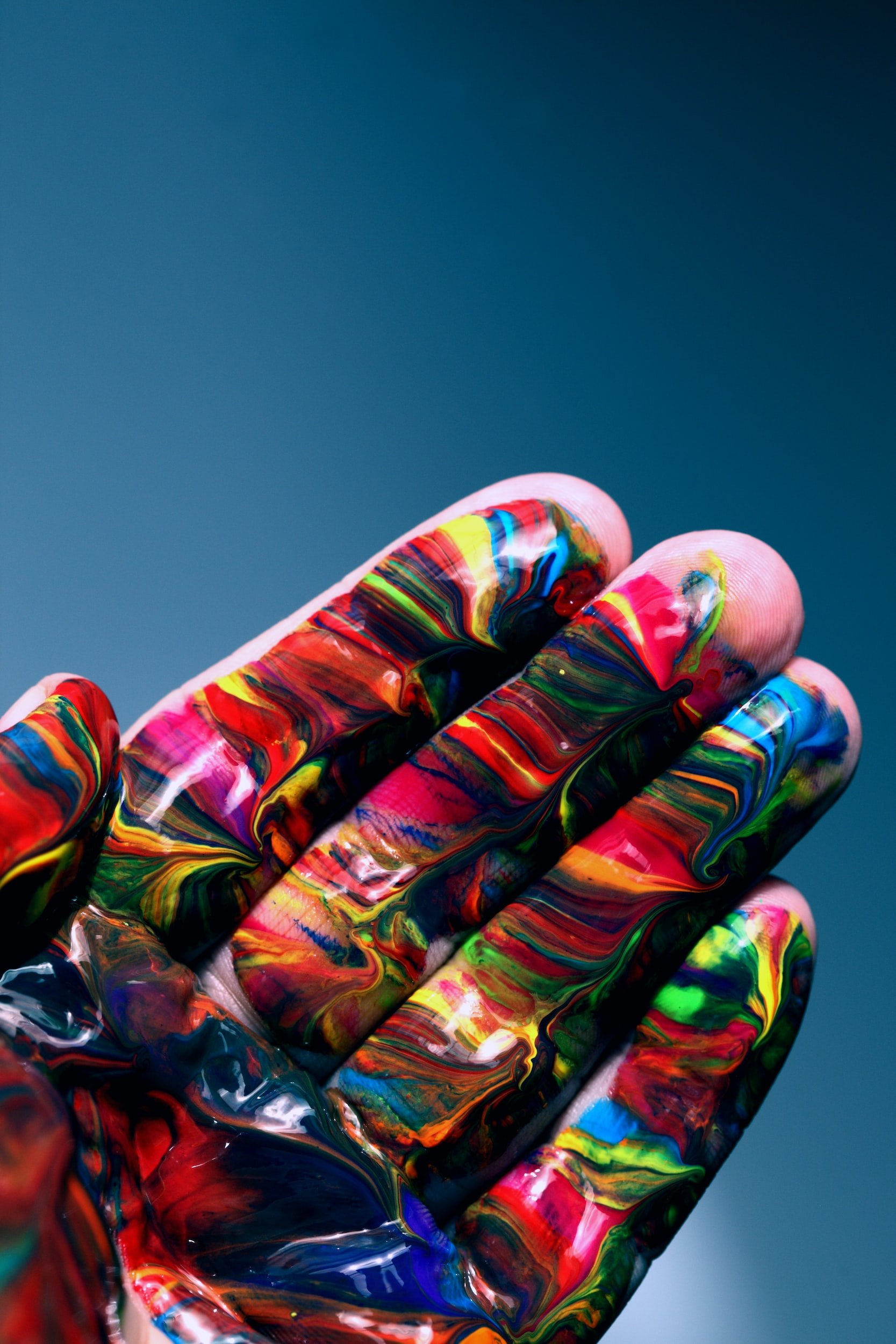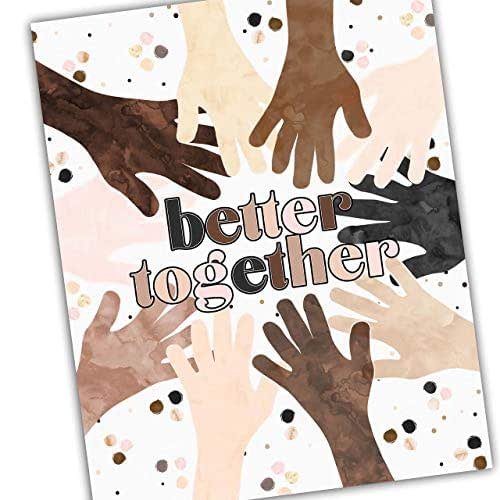
Inclusivity Team
Our Welcome Statement
Welcome to Our Saviour's Lutheran Church where we "walk with Christ and neighbor healing brokenness together." We believe that Walking with Christ is achieved by walking with all of God’s children. Jesus erases any boundaries that divide us on our journey. In order to bring justice to God’s beloved people, we commit to the work of racial equity, physical accessibility, gender equality, prison reform, healthcare accessibility, and economic and ecological advocacy.
We welcome all because Jesus welcomes all.
People who believe, doubt, and seek: You are welcome here.
People who are Indigenous and People of all colors, ethnicity, and cultures. You are welcome here.
People who face addiction and mental illnesses: You are welcome here.
People who are currently or formerly incarcerated: You are welcome here.
People who are members of the LGBTQIA+ community, or those who still wonder who God created you to be: You are welcome here.
People of all educational, occupational, and income situations. You are welcome here.
People of all ages, abilities, shapes and sizes: You are welcome here.
People who have been unwelcomed in other communities: You are welcome here.
We strive to journey forward in love. With YOU here, we are becoming the people whom God calls us to be.
We are a group of faith communities in Lincoln, Nebraska, who believe that everyone should have a safe place to explore and nurture their spirituality.
OSLC Library Selections on Inclusivity and Diversity
-
How We Do Family: from Adoption to Trans Pregnancy, What We Learned about Love and LGBTQ Parenthood, by Trystan Reese. One LGBTQ family’s story of the many alternate paths that lead to loving families with parenting lessons for everyone. [RF 27]
What’s Your Pronoun? Beyond He and She, by Dennis Baron. Introduces a new way of thinking about language, gender and how they intersect. Provides historical context and analysis about what we call ourselves. [SI 33]
God and the Gay Christian: the Biblical Case in Support of Same-Sex Relationships by Matthew Vines. The author, a gay man provides a store of scholarly work on what Scripture says and does not say about same-sex relationships. He also describes the damage done by traditional exclusionary interpretations. [BSH 217]
One Coin Found: How God’s Love stretches to the Margins by Emmy Kegler. Kegler tells us about struggling with mental illness, wrestling with faith and rejecting human rejection in favor of God’s grace. She invites the reader to a place where they can be honest about who they are and be loved for it. [CL 393]
Untamed by Glennon Doyle. Memoir by writer and speaker who finds love with a woman while still married to her husband. Comes out to her family and fans and helps others break free to acknowledge themselves. [BG Doy]
transforming: the Bible and the Lives of Transgender Christians by Austen Hartke. A theologically trained transgender man weaves Bible stories with the life stories of transgender people, including his story. Shows ways the Bible urges us to embrace those who are not like us. [BSH 216]
God vs. Gay: the Religious Case for Equality by Jay Michaelson. Jewish scholar makes the case, based on passages from the Hebrew Bible and the New Testament and data on the science of sexual orientation that sexual diversity is part of the beauty of God’s creation. [TH 82]
-
Caste: The Origins of Our Discontents by Isabel Wilkerson. Pulitzer Prize winning author Wilkerson provides a powerful and heartfelt account of how hierarchy reproduces itself, as well as providing a call to action for the work of undoing it. [SI 32]
The Color of Compromise: the Truth about the American Church’s Complicity in Racism by Jemar Tisby. Author and historian Tisby, explains the role that racism has played in the American church and how it has influenced policy making. [CHL 105]
White Too Long: the Legacy of White Supremacy in American Christianity by Robert P. Jones. Sociologist and commentator raised in the Southern Baptist Church, Jones gives readers a concise, but comprehensive combination of religious history, social science research and a heartfelt memoir. [CHL 106]
Halfway Home: Race, Punishment, and the Afterlife of Incarceration by Reuben Jonathan Miller. A former Cook County Jail chaplain and now a Sociology Professor, Miller provides an ethnographic study of incarceration’s “afterlife” that sets up most reentrants for failure. [SI 32]
So You Want to Talk About Race by Ijeoma Oluo. Writer and speaker Oluo writes as a black, queer, middle class, college-educated woman. She organizes the book around questions white people ask about race from “What is racism?” to “Why can’t I touch your hair?” Set up in short segments with a discussion guide. [SI 23]
Why Are All the Black Kids Sitting Together in the Cafeteria: and other conversations about Race by Beverly Daniel Tatum. Published originally in 1997, revised and updated 2017. Tatum, president emerita of Spelman College and authority on the psychology of racism argues that straight talk about our racial identities is necessary to communicate across racial and ethnic divides. [SI 25]
Uncomfortable Conversations with a Black Man by Emmanuel Acho. A former NFL player and sports analyst, Acho, the child of Nigerian immigrants, tackles tough topics about race relations while trying to bring understanding. [SI 26]
Biased: Uncovering the Hidden Prejudices that Shape What We See, Think and Do by Jennifer Eberhardt, PhD. The author uses current research and personal experiences to help explain how human brains have evolved to fear “the other’ and how to combat our innate bias after we recognize it. [SI 30]
-
The Far Away Brothers: two young migrants and the making of an American life by Lauren Markham. 2019 One Book, One Lincoln winner. Deeply reported story by journalist/teacher Markham of identical twin brothers who escaped violence in El Salvador and their complicated journey to build new lives in California. [SI 13]
Americanah: a novel by Chimamenda Ngozi Adichie. 2015 One Book, One Lincoln winner. Story of two young people from Nigeria who experience difficult choices as she comes to the US and he goes to Britain and eventually find themselves back in Nigeria. [Fic Adi]
Zeitoun by Dave Eggers. 2011 One Book, One Lincoln nominee. The story of one family caught between two policy disasters – the response to Hurricane Katrina and Zeitoun’s experience as a Syrian immigrant seen as a possible terrorist after the hurricane when he stays in New Orleans and his wife evacuates with their children. [EX Zei]
They Called Us Enemy by George Takai, Justin Eisinger and Steven Scott with Art by Harmony Becker. Graphic memoir recounting actor/author/activist George Takai’s childhood held in American internment camps during World War II. [YO 128]
-
Tuesdays with Morrie: an old man, a young man, and life’s greatest lesson. by Mitch Albom. The author is given the chance to discover life through the death of a former professor and friend. 192 pages. [BG Sch]
Reclaiming Conversation: the Power of Talk in a Digital Age. by Sherry Turkle. Examines how avoiding conversations with digital substitutes undermines relationships, creativity and productivity and why face-to-face conversation is better. 436 pages [RF 26]
My Grandmother’s Hands: Racialized Trauma and the Pathway to Mending Our Hearts and Bodies. By Resmaa Menakem. Author and therapist discusses the damage caused by racism in America. Argues this destruction will continue until Americans learn to heal from the generational trauma of white supremacy. Not just for people of color, but also white America and police. 309 pages. [SI 27]
The Art of Growing Old. By Carroll Saussy. A guide to faithful aging. 176 pages. [PS22]
-
Just Mercy: A Study of Justice and Redemption by Bryan Stevenson. A One Book, One Lincoln finalist in 2015. Written by a brilliant, compassionate lawyer who founded the Equal Justice Initiative. Stevenson conveys the injustices of the criminal justice system thru individual stories of innocent people trapped on death row. [SI 10]
The New Jim Crow: Mass Incarceration in the Age or Colorblindness by Michelle Alexander. Originally published in 2010, Alexander’s well-documented book argues that “we have not ended the racial caste in America, we have merely redesigned it.” [SI 21]
Waiting for an Echo: the Madness of American Incarceration by Christine Montross, M.D. The psychiatrist author, who is also a poet, writes a moving and riveting account of policies that criminalized mental illness and shifted large numbers of people from therapeutic settings to prisons. [SI 29]
Prison by Any Other Name: the Harmful Consequences of Popular Reforms by Maya Schenwar and Victoria Law. Authors examine “alternatives to incarceration” such as electronic monitoring, house arrest, extended probation, and locked-down drug treatment the often widen the net of punishment and surveillance to the family and the community. [SI 28]
-
Red: A Crayon’s Story by Michael Hall. A delightful picture book for all ages about being true to self. Red is a blue crayon with a red label who must discover himself. CH HAL
Neither by Arlie Anderson. Another wonderful picture book about a creature born in the Land of This and That who is Neither, but finds its way to the Land of All. CH AND
Where Are You From? by Yamile Saied Mendez, illus. by Jaime Kim. Great read aloud from an Argentine-American author and a South Korean American illustrator that gently answers a young girl’s question to her grandfather with the history of her people and ends with validating she comes from people who love her. Lends itself to starting conversations around race. (Pre-school – 2nd grade) [CH Men]
Fish for Jimmy: Inspired by One Family’s Experiences in a Japanese American Internment Camp by Katie Yamasaki. When brothers Taro and Jimmy and their mother are moved to at Japanese internment camp in WWII, Jimmy stops eating because there is no fish. Taro bravely escapes at night to find fresh fish for his grieving brother. Beautifully told and illustrated. (1st – 3rd grade) [CH Yam]
The Undefeated by Kwame Alexander and Kadir Nelson. 2020 Caldecott Award winner. Beautifully illustrated poem is a love letter to black life in the United States. Highlights trauma of slavery, faith and fire of the civil rights movement and grit, passion and perseverance of black heroes. (K – 2nd grade) [CH Ale]
Freedom in Congo Square Carole Baker Weatherford, illus. by R. Gregory Christie. In historic Louisiana, enslaved Africans were given a half day of rest on Sunday. In New Orleans, the place they gathered was Congo Square. Christie’s illustrations accompany Weatherford’s beautiful poem to describe Black life during the week and the song and dance in Congo Square. (K – 3rd grade) [CH Wea]


